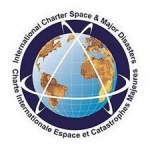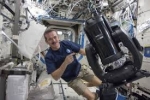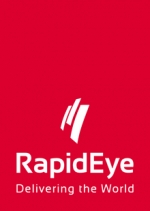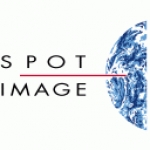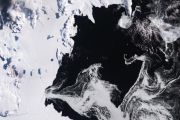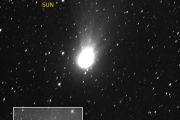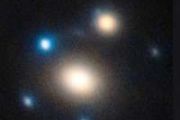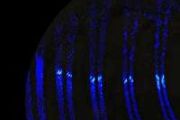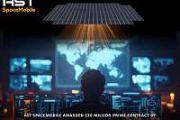Displaying items by tag: image acquisition
International Charter on Space and Major Disasters
The International Charter on Space and Major Disasters is a charter which provides for the charitable retasked acquisition of and transmission of space satellite data to relief organizations in the event of major disasters.
Initiated by the European Space Agency and the French space agency CNES after the UNISPACE III conference held in Vienna, Austria in July 1999, it officially came into operation on November 1, 2000 after the Canadian Space Agency signed onto the charter on October 20, 2000. Their troika of space assets was, respectively, ERS and ENVISAT, SPOT and Fomosat, and RADARSAT.
The assorted satellite assets of various private, national, and international space agencies provide for humanitarian coverage which is wide albeit contingent. First activated for floods in northeast France in December 2001,[1] the Charter has since brought space assets into play for numerous earthquakes, oil spills, forest fires, tsunamis, major snowfalls, volcanic eruptions, hurricanes and landslides.
The International Charter aims at providing a unified system of space data acquisition and delivery to those affected by natural or man-made disasters through Authorized Users. Each member agency has committed resources to support the provisions of the Charter and thus is helping to mitigate the effects of disasters on human life and property.
ISERV Pathfinder
the ISS SERVIR Environmental Research and Visualization System (ISERV) is an image acquisition installed on the ISS Destiny module to take photos of Earth from the ISS.
ISERV is a commercial camera, telescope and pointing system operated remotely from Earth by researchers at NASA's Marshall Space Flight Center in Huntsville, Ala. With ISERV NASA will be able to provide high resolution images of Earth!
DigitalGlobe
DigitalGlobe of Longmont, Colorado, USA, is a commercial vendor of space imagery and geospatial content. It is an operator of civilian remote sensing spacecraft. The company went public on the New York Stock Exchange on 14 May 2009.
Satellites:
- WorldView family of satellites.
- QuickBird
- EarlyBird
Origin:
in 1992, the company Worldview Imaging Corporation was founded.
In 1995, Worldview became EarthWatch Incorporated, after merging with a division of Ball Aerospace & Technologies Corp.
In 2001, EarthWatch became DigitalGlobe.
Spatial Energy
Spatial Energy is a provider of digital imagery and services within the energy industry.
Solely dedicated to meeting the needs of energy companies operating worldwide, Spatial Energy acquires, processes, and manages an extensive collection of high resolution satellite and aerial imagery, topographic maps, and digital elevation models (DEMs). Imagery is available on demand from an extensive data archives, by tasking satellites and aerial providers, and by speculative collection. Spatial Energy has established preferred relationships with the leading data providers and can thus select the best source(s) to meet a client particular application. In addition, programs such as the Energy Partner Program (EPP), BasinWatch and Spatial on Demand provide simplified, cost effective access to imagery. The company goal is to reduce the cost, time and effort required to acquire imagery for all client needs.
RapidEye AG
RapidEye AG was a German geospatial information provider focused on assisting in management decision-making through services based on their own Earth observation imagery. The company owns a five satellite constellation producing 5 meter resolution imagery that was designed and implemented by MacDonald Dettwiler (MDA) of Richmond, Canada. Originally located in Munich, the company relocated 60 km southwest of Berlin to Brandenburg an der Havel in 2004.
Applications
RapidEye provides geospatial information-based management solutions to the following industries: agriculture, forestry, environment, spatial solutions.
Satellites
Five Identical Satellites: Built by Surrey Satellite Technology Ltd. (SSTL) of Guildford, subcontracted by MacDonald Dettwiler (MDA). Each satellite is based on an evolution of the flight-proven SSTL-100 bus, and measures less than one cubic meter and weighs 150 kg (bus + payload).
On November 6, 2013 RapidEye has officially changed its name to BlackBridge.
SPOT Image
Spot Image is a French public limited company created in 1982 by the French Space Agency, Centre National d'Etudes Spatiales (CNES), the IGN, and Space Manufacturers (Matra, Alcatel, SSC, etc.). It is now (year 2012) a subsidiary of EADS Astrium (99%).
The company is the commercial operator for the SPOT Earth observation satellites.
Spot Image is a worldwide distributor of products and services using imagery from Earth observation satellites and works through a network of subsidiaries, local offices (Australia, Brazil, China, United States, Japan, Peru, Singapore), and partners. The goal is to provide on-the-spot service with worldwide availability.
Spot Image works with a network of more than 30 direct receiving stations handling images acquired by the SPOT satellites.
GeoEye Inc.
GeoEye Inc. (formerly Orbital Imaging Corporation or ORBIMAGE) is a commercial satellite imagery company based in Herndon, Virginia, USA.
GeoEye operates its own fleet of Earth observation satellites, which provide visible and near-infrared images of land and sea at resolutions below 1 m.
GeoEye provides 253,000,000 square kilometres of satellite map images to Microsoft and Yahoo! search engines. Google has exclusive online mapping use of the new GeoEye-1 satellite. It is a major supplier to the USA National Geospatial-Intelligence Agency.
GeoEye's headquarters are in Herndon, Virginia. Satellite Operations are conducted in Herndon, Virginia and in Thornton, Colorado. The location in Saint Louis, Missouri provides additional image processing. There are multiple ground stations located worldwide.
GeoEye's primary competitors are DigitalGlobe and Spot Image.
The company was founded in 1992 as a division of Orbital Sciences Corporation in the wake of the 1992 Land Remote Sensing Policy Act which permitted private companies to enter the satellite imaging business. The division was spun off in 1997. It changed its name to GeoEye in 2006 after acquiring Denver, Colorado-based Space Imaging. Space Imaging was founded and controlled by Raytheon and Lockheed Martin. Its principal asset was the IKONOS satellite.
ScanEx R&D Center
ScanEx Research and Development Center (ScanEx R&D Center) is a Russian company on the remote sensing market.
It offers a set of services ranging from acquisition to thematic processing of Earth observation images from space. In 2012, ScanEx had signed license agreements with the top world remote sensing operators for direct data acquisition from IRS, SPOT, EROS, RADARSAT and ENVISAT satellites series to proprietary UniScan™ ground stations, enabling regular near real-time monitoring of territories of Russia and the CIS countries with spatial resolution from hundreds to less than one meter.

